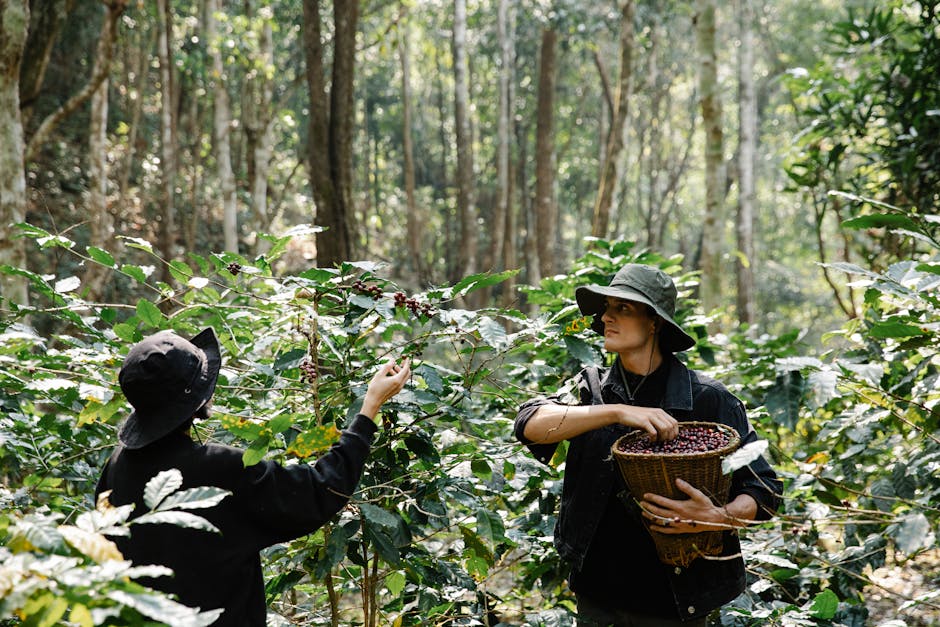
How Sustainable Coffee Supports the Environment and Farming Communities
What is sustainable coffee?
Sustainable coffee refers to coffee that is grown and produced in a way that takes into account the environmental impact and supports the well-being of the farming communities involved. This type of coffee is often grown using practices that conserve ecosystems, reduce water usage, and promote biodiversity. Additionally, sustainable coffee ensures fair wages for farmers and workers, as well as safe and ethical working conditions. By choosing sustainable coffee, you are not only supporting a healthier planet but also the livelihoods of those who work hard to produce it.
Benefits of choosing sustainable coffee
Choosing sustainable coffee benefits the environment and supports farming communities. When you opt for sustainable coffee, you are actively contributing to the conservation of natural resources and wildlife habitats. Additionally, sustainable coffee farming practices help reduce pollution and promote biodiversity. By supporting sustainable coffee, you are also ensuring that farmers receive fair wages and work in safe conditions. This conscious choice promotes ethical practices in the coffee industry and fosters a healthier ecosystem for everyone involved.
Environmental impact of sustainable coffee
Sustainable coffee production helps protect the environment by reducing deforestation, promoting biodiversity, and conserving water resources. Farmers often use organic farming practices and shade-grown techniques, which preserve soil quality and support wildlife habitats. By choosing sustainably sourced coffee, you contribute to a healthier ecosystem and support farming communities that rely on these practices for their livelihoods.
Economic benefits for farming communities
Farmers who produce sustainable coffee can benefit economically in several ways. When farming communities adopt sustainable practices, they often see an increase in their income and job opportunities. By focusing on sustainable coffee production, farmers can access fair trade markets, which pay a higher price for the coffee. Fair trade ensures that small-scale farmers receive a fair price for their products, enabling them to invest in their communities and improve their quality of life. Moreover, sustainable coffee farming methods can lead to higher crop yields and better preservation of the environment, which in turn contributes to long-term economic stability for farming communities.
Certification standards for sustainable coffee
Certification standards for sustainable coffee help ensure that the coffee you’re drinking is produced in an environmentally friendly and socially responsible manner. Here are some key points to consider:
- Organic certification: Coffee that is labeled as organic means it was grown without the use of synthetic pesticides or fertilizers.
- Fair Trade certification: This certification ensures that farmers receive fair prices for their coffee and promotes sustainable farming practices.
- Rainforest Alliance certification: Coffee with this certification meets standards for wildlife protection, worker conditions, and farm management.
- UTZ certification: Coffee with UTZ certification follows guidelines for sustainable farming and better agricultural practices.
-
Bird-Friendly certification: This certification ensures that the coffee is grown in a way that supports bird habitats and biodiversity conservation.
Organic vs. fair trade coffee
Organic coffee is grown without harmful pesticides or synthetic fertilizers. This helps prevent pollution, protects wildlife, and promotes healthier soil. Fair trade coffee ensures farmers receive fair wages and work in safe conditions. By choosing organic and fair trade coffee, you support environmentally-friendly farming practices and empower communities worldwide.
Sustainable farming practices
Sustainable farming practices aim to minimize harm to the environment and support the well-being of farmers and their communities. Through methods like crop rotation, composting, and natural pest control, sustainable farming reduces the need for harmful chemicals and promotes soil health. Fair trade practices ensure that farmers receive fair compensation for their work and support community development projects. By choosing sustainably produced coffee, you contribute to a healthier environment and help improve the livelihoods of farming communities.
Support for biodiversity and ecosystem preservation
Supporting sustainable coffee helps preserve the environment and the communities that depend on farming. By choosing sustainable coffee, you contribute to biodiversity conservation and protect the ecosystem where coffee is grown. Sustainable coffee farming practices promote soil health, water conservation, and habitat protection for various wildlife species. This commitment to sustainability ensures that future generations can enjoy a healthy environment and thriving farming communities.
Social responsibility in sustainable coffee production
Social responsibility in sustainable coffee production focuses on enhancing the well-being of farming communities and protecting the environment. Coffee producers who follow sustainable practices prioritize fair wages for workers, safe working conditions, and environmental conservation. They may also support local communities through initiatives like building schools or healthcare facilities. By choosing sustainably produced coffee, you contribute to the betterment of both the environment and the lives of those involved in its production.
Conclusion: The importance of supporting sustainable coffee
Supporting sustainable coffee is crucial for the environment and the livelihoods of coffee farmers. By choosing sustainable coffee, you are contributing to the preservation of ecosystems, ensuring fair pay for farmers, and promoting ethical farming practices. Your decision to opt for sustainable coffee can create a ripple effect, leading to a more environmentally friendly and socially responsible coffee industry. So, next time you reach for your morning brew, consider the impact your choice can make.

